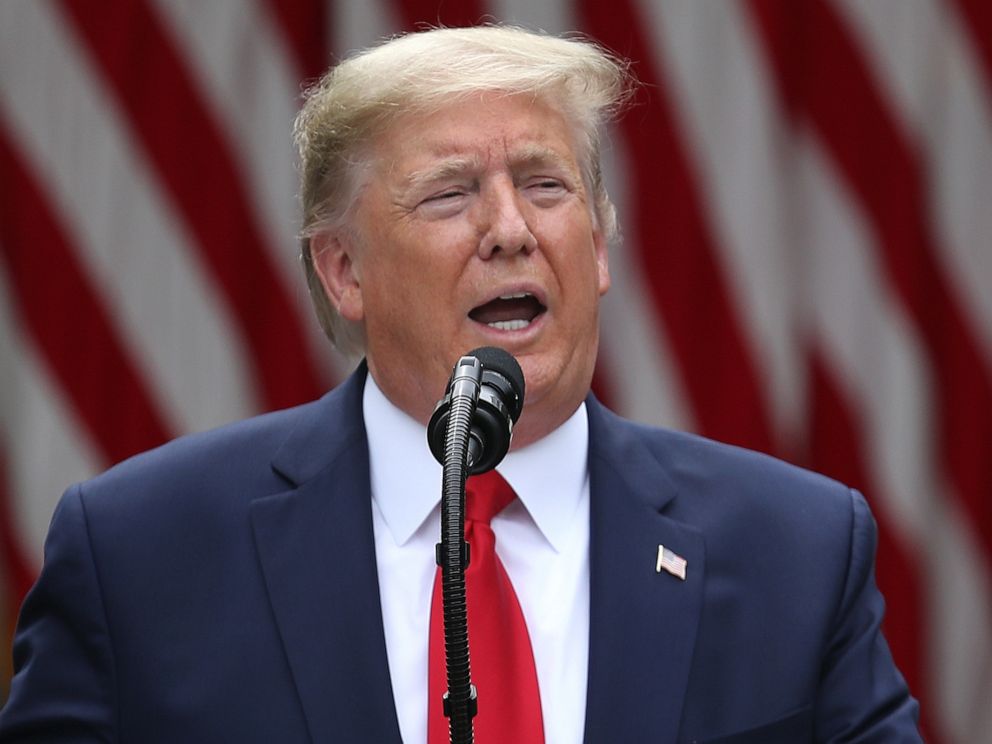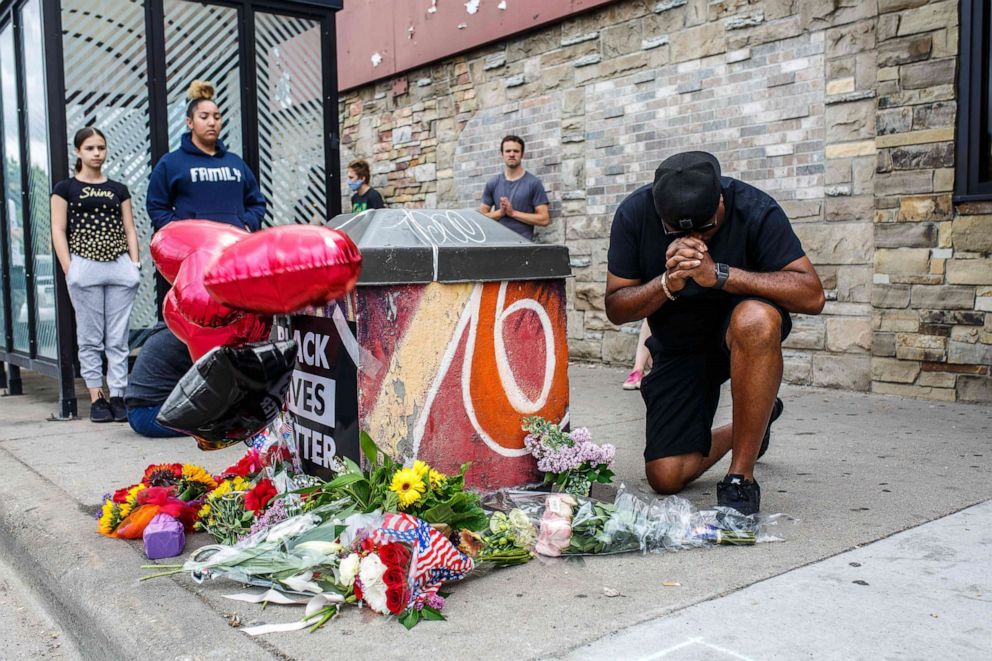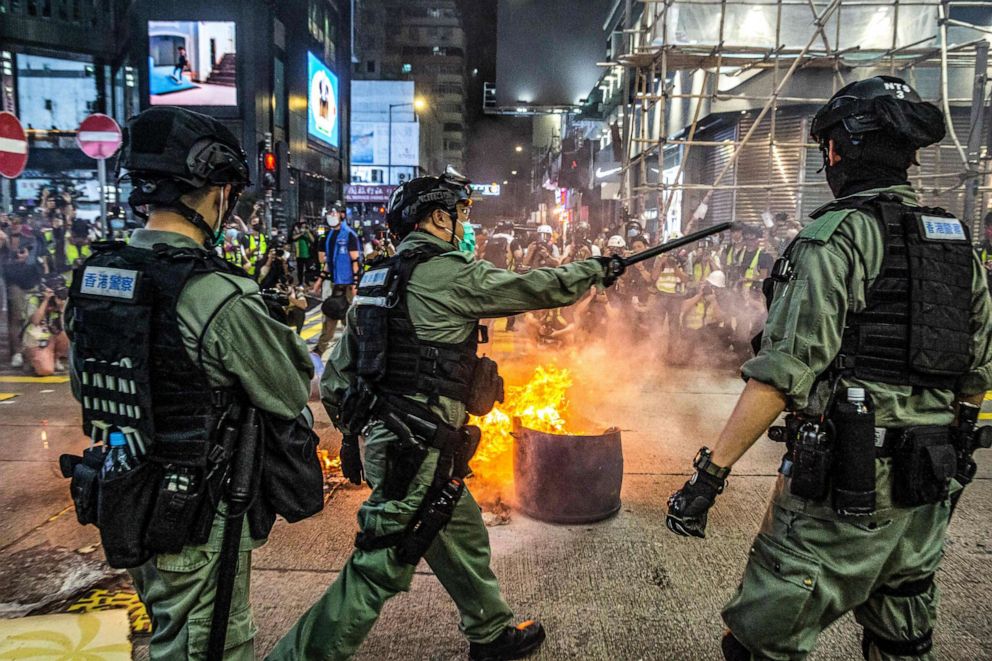Trump announces China sanctions over Hong Kong, termination of WHO relationship
He did not mention the death of George Floyd during the White House event.
President Donald Trump on Friday announced sanctions on China over its approach to Hong Kong and said he would end the United States' relationship with the World Health Organization over its handling of the novel coronavirus pandemic.
“We will be today terminating our relationship with the World Health Organization and redirecting those funds to worldwide and deserving, urgent global public health needs,” Trump said.
Trump had last week threatened that the U.S. would permanently stop funding the W.H.O. and withdraw from the United Nations agency unless it made "major substantive improvements within the next 30 days."

Only 11 days has elapsed since he issued that threat. Trump's moves to pull U.S. funding for WHO have been widely criticized, particularly for ceding the global stage to China even as he criticizes the organization for being too deferential to Beijing.
During his remarks in the White House Rose Garden on Friday afternoon, Trump focused entirely on China and took no questions from reporters, despite the White House's billing the event as a news conference.
He did not mention the death of George Floyd, a black man who was seen pinned down in a video by a white police officer in Minneapolis and later died, or the ensuing protests across the country.
At the end of his remarks, Trump walked away as reporters shouted questions about Floyd and Minnesota.

The president said he was directing his administration to “begin the process” of ending the special trade relationship with Hong Kong and impose sanctions on unspecified Chinese officials tied to China’s latest moves on Hong Kong, taking action "to revoke Hong Kong's preferential treatment as a separate customs and travel territory from the rest of China."
China’s rubber-stamp parliament on Thursday endorsed with thunderous applause a controversial new law to ban all “activities” in Hong Kong that endanger China’s national security.
The yet-to-be-drafted law would ultimately be enacted in Hong Kong by decree, bypassing the local lawmaking process. The Asian financial center is supposed to have a high degree of autonomy from Beijing under the "One Country, Two Systems" arrangement put in place when the former British colony was handed back to China.
"China's latest incursion, along with other recent developments that degraded the territory’s freedoms, makes clear that Hong Kong is no longer sufficiently autonomous to warrant the special treatment that we have afforded the territory since the handover" of the territory from Britain to China, Trump said.

He said the announcement "will affect the full range of agreements we have with Hong Kong from our extradition treaty to our export controls on dual use technologies and more with a few exceptions,” he said. “We will be revising the State Department's travel advisory for Hong Kong to reflect the increased danger of surveillance and punishment by the Chinese state security apparatus.”
Trump said the United States would also move to sanction Chinese and Hong Kong officials who have been "directly or indirectly involved in eroding Hong Kong's autonomy" and "smothering, absolutely smothering Hong Kong's freedom."
Trump also announced restrictions on Chinese nationals coming to study at U.S. universities, and he said he would instruct a working group to look at the practices of Chinese companies listed on U.S. financial markets.
“Investment firms should not be subjecting their clients to the hidden and undue risks associated with financing Chinese companies that do not play by the same rules,” he said. “Americans are entitled to fairness and transparency.”
He later signed a proclamation barring the entry of Chinese students tied to the Chinese military from entering the U.S. to study or conduct research above the undergraduate level, arguing Chinese “authorities use some Chinese students, mostly post graduate students and post-doctorate researchers, to operate as non-traditional collectors of intellectual property.”
The proclamation, which goes into effect indefinitely starting Monday, provided exemptions for U.S. permanent residents and their spouses, the spouses of American citizens, people seeking asylum and a few other limited categories.




